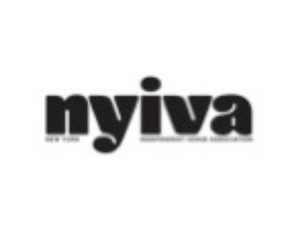Independent Venues In NY Launch Lobby For State Aid
A recent study shows that arts & culture is the second most impacted industry in New York State.

New York Independent Venue Association (NYIVA) has launched an effort on behalf of independent music and comedy venues and promoters for targeted assistance in New York State's final enacted State Budget. The organization is in discussions with state legislators about a number of modifications to the state's initial budget proposal to ensure the maximum possible benefit to New York's live performance industry's employees, communities and the broader economy.
Small Business Reopening and Relief Grant program
- Increase eligibility:
- include nonprofit performing arts sector.
- increase to 500 or eliminate the FTE cap for the for-profit and nonprofit performing arts sector (this will not significantly impact the fund but would help the sector tremendously).
- Create a 30-day priority period for the performing arts sector (for profit and nonprofit) due to state government mandated closures.
- Change the definition of microbusiness to 40 employees.
- Candidates may not be required to provide matching funds for any of these relief programs.
- Provide grants as advances, not reimbursements.
- Increase the overall size of the fund to ensure meaningful relief. We project the cost to address our need alone to be about $250M.
Commercial Rent Relief
- Create a 30-day priority period for the performing arts sector (both for profit and nonprofit) due to state government mandated closures.
Arts Fund (NYSCA)
- Clarify that all art nonprofit organizations are eligible for relief funding regardless of a prior funding history with NYSCA or previous eligibility within traditional NYSCA program categories.
- Ensure that relief funds are not restricted to program expenses.
- Create a 30-day priority period for performing arts organizations due to state government mandated closures.
- Candidates may not be required to provide matching funds for any of these relief programs.
- Provide grants as advances, not reimbursements.
- Increase the size of the Arts Funding to make be commensurate with the scope of the sector-wide devastation, estimated at over $900M.
Eligibility - direct Empire State Development and NYSCA to use the following eligibility criteria:
- Candidates for grants would be defined as nonprofit or private for-profit, independently operated live-performance venues, promoters, production companies, and/or performance-related businesses located in New York State who were forced to shut down, operate at reduced capacity, or directly impacted due to government-mandated health orders.
- Candidates must identify as arts and culture organizations or arts-related businesses whose primary business is presenting or supporting live performances by discipline- based artists, and must show that 70% of their business is generated from live events, and may not be owned, operated by, or majority programmed by a publicly traded company. These types of organizations include venues, producers, promoters, and the ancillary businesses included but not limited to casting, marketing, production elements, and others.
Comments
Industry Classifieds
Videos

